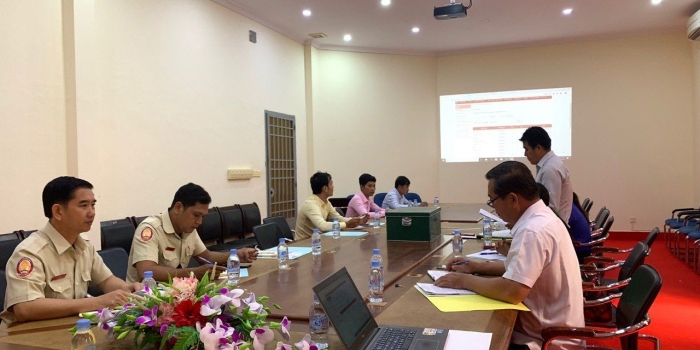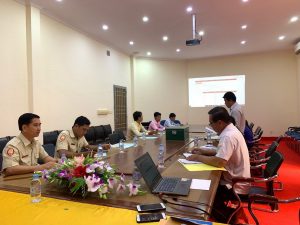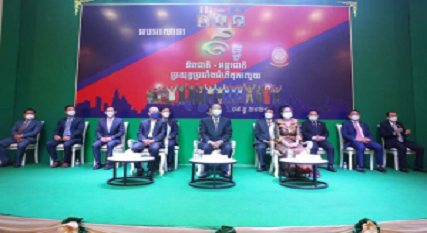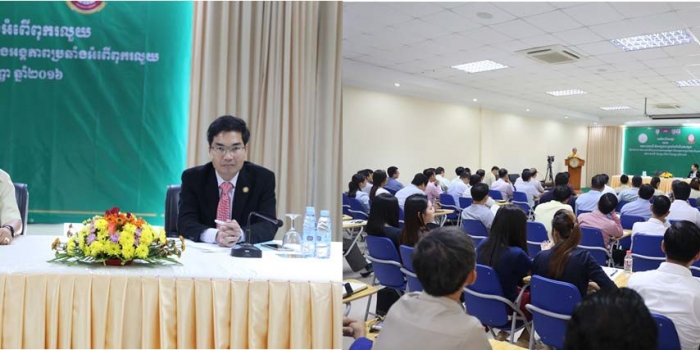
In this situation, integrity in public procurement becomes a hot topic and also requires high attention especially, because of the demand for some emergency products. Cambodia took action instantaneously in response and issued several pre-active approaches which straight forward to guarantee integrity in the management of Covid-19 and to address all problems in order to make sure that government spending is effective and transparent. Those are the creation of a working group on supply management and price management on strategic product during the fight against Covid-19 on April 03, 2020 which composed of high-ranking leaders from related units and institutions. The working group has the role to identify the strategic product, control the quality and price of the product, and guarantee the sustainability of supply that this role has been set by the law on public procurement (Art. 13 and Art. 52) with the monitoring mechanism. Furthermore, the head of government also sent a message to alert all the government officials all over again about the practicing of 5 approaches “Mirror, Bath, Scrub, Treatment and Surgery” in their work and there is no exception or tolerance for those who commit corruption especially in this difficult situation.
In general auditing work throughout various procurement units, the ACU has participated in preventing the irregularities through overt mechanism (a direct participation throughout each and every step of the processes on checking over the status and documents) and covered mechanism (collecting information on the procurement processes, background/networking of related parties associated with conflict of interests) by a direct observation on the procurement processes; a check over on related documents in the procurement processes; and an implementation on the methods of immediate handling on the procurement-related cases.
In 2020, the ACU has checked over the implementation of expenses of 163 procurement units with a total of 1,505 projects, where the ACU has made a direct observation for 79 times with a total of 141 projects in 34 procurement units, and has checked over the processes of public procurement for a total of 1,364 projects in 155 procurement units. After wrapping up the observation, the ACU prepares a report submitted to the head of procurement commission (the head of the institution) and makes a copy submitted to the head of anti-corruption focal points highlighting the positive points and any irregularities noticed by the ACU including recommendations, and ACU has continuously followed up the actions taken. In case of severe irregularities, the ACU will issue an announcement not recognizing the outcomes of the bidding. The ACU has also constructed a data system for managing procurement information and more than 200 companies have been identified as high risk (Red Flag) companies which are considerably the objectives of being put into a blacklist for bidding since those companies are illegal, not having business operations, systemized brokers or having direct/indirect irregular networks with procurement commission.

Anti-Corruption Unit team observed the meeting of procurement-tendering disclosing of ministries/institution
Related Articles
2021 National-International Anti-Corruption Day Celebration [caption id="attachment_7685" align="alignnone" width="300"] H.E Kittinitikosalbindit Om Yentieng, Senior Minister, President of Anti-Corruption Unit delivered speech at the 9th December of National-International Anti-Corruption Day[/caption] [caption...
In 2006, the Anti-Corruption Unit (ACU) has disseminated the anti-corruption law to the target groups for 7 times in the following provinces/cities: In Kampong Speu province, the ACU disseminated the...
The Effort to Strengthen Anti-Money Laundering Capacities To combat corruption, in 2017, the Anti-Corruption Unit has hosted two workshops with the cooperation of the World Bank on "Using Anti-Money Laundering...





